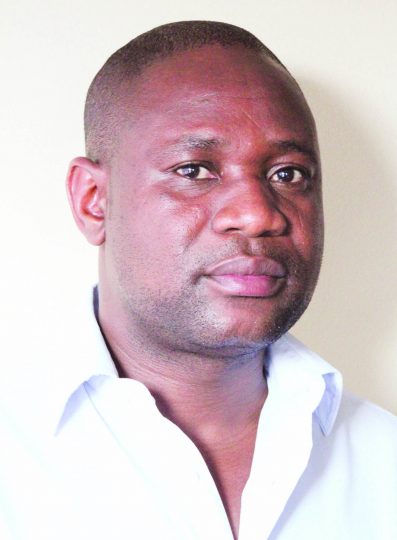Source: Why investors shun Zim – The Zimbabwe Independent May 17, 2019
Editor’s Memo Dumisani Muleya
TRANSPORT minister Joel Biggie Matiza this week sought to shed light on what is actually happening on the US$400 million recapitalisation project between the National Railways of Zimbabwe (NRZ) and South African rail, port and pipeline utility, Transnet, and its partner the Diaspora Infrastructure Development Group (DIDG).
This followed a question in parliament by independent MP Themba Mliswa who had asked why the project was dragging after President Emmerson Mnangagwa had publicly commissioned it last year.
Matiza said the deal was slow because DIDG has no money.However, DIDG dismissed this as false and misleading. It said it has obtained term sheets from leading South African banks which are ready to provide close to US$1 billion to fund the project.
According to the term sheets, South Africa’s Standard Bank is ready to shell out between US$100 million and US$137 million on the project, Absa (US$200 million), Nedbank (US$200 million) and Nedbank Zimbabwe (US$17,5 million), and the Industrial Development Corporation of South Africa (US$100 million).
Ecobank Kenya has also expressed commitment to channel US$100 million towards the project, while Eastern and Southern African Trade and Development Bank will provide US$75 million. The Commercial Bank of Zimbabwe has a US$50 million war chest.
DIDG says it gave Matiza proof of funding during a stakeholders meeting on October 1, 2018.
The minister, however, says the term sheets are not binding, but DIDG insists that final term sheets — binding agreements setting forth the basic terms and conditions under which funding will be made — will only be issued upon completion and signing of all the outstanding agreements for the project.
Negotiations over agreements have been going on forever. Government says the problem is lack of funding, but DIDG argues that transaction and legal advisers, as well as Matiza and his colleagues, have been a huge stumbling block.
Matiza’s recent ZBC interview and his remarks in parliament this week fed into the swirling stories and the narrative that he and other officials no longer want the project in its current form and that, actually, they want to bring in their preferred investor through the back door. This has serious legal implications.
The next logical question is: what is in it for them?
Beyond that the bigger worry is what this does to investor sentiment. Already Zimbabwe is struggling to attract meaningful capital due to a hostile business climate and country risk. So when officials are seen to be sabotaging a huge project like this one, perhaps for personal aggrandisement, it inflicts irreparable damage on the country’s reputation as an investment destination.
Only yesterday Metallon Corporation, a leading local gold mining concern owned by South African tycoon Mzi Khumalo, said it was taking government to court for failing to pay it US$132 million in gold proceeds.
It said it was gravely concerned that authorities were motivated by “corruption” and behaved with an aura of “impunity” in dealing with them over the issue.Zimbabwe’s competitiveness is held back by rampant corruption, mainly in high circles, which penetrate every economic sector and facet of life.
A weak criminal justice system and frequent demands for bribes by public officials lead to increased business costs for investors. Widespread tax evasion hinders Zimbabwe’s long-term economic growth, and fraud in public procurement is rampant.
If the NRZ deal is sabotaged by authorities, with corruption and impunity seen as major factors, investors will further confirm their worst fears — if any validation is still needed — that Zimbabwe remains unreconstructed and unreformed, hence unfriendly to investors, particularly foreign direct investment.
Corruption inhibits economic growth and affects business operations, employment and investment. It also reduces tax revenue and hinders development. The wider society also suffers due to corruption.
That is why Mnangagwa must intervene urgently and stop the reported shenanigans happening around the NRZ deal.
Besides, Mnangagwa must fire corrupt officials.
Newer Post
Prosecutors down tools 
COMMENTS
“Why investors shun Zim”. The simple reason is, IT’S A MESS !!! End of story.
More than that , we need to go back pre 1999 and reflect on what was right and wrong then and move forward. It does appear no one is answerable to anyone thus the current situation. There was a time if you were caught stealing you were fired. Who gets fired now or put in jail. Only the ordinary people are in jail. Since speaking to foreigners who love Zimbabwe many say they will never invest here until things improve on all fronts. Why is Ed doodling about. People are suffering and all Ed has to do is create jobs jobs jobs. Come on Mr Ed what really is your issue.